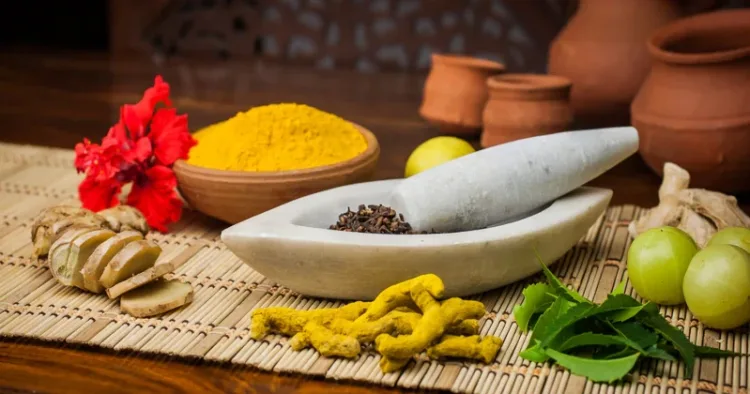As stress continues to impact countless lives in our fast-paced society, many are turning to ancient wisdom for relief. Ayurveda, the traditional system of medicine from India, is gaining attention for its holistic approach to managing and alleviating stress.
Ayurveda, rooted in the concept of balancing the body’s three doshas—Vata, Pitta, and Kapha—views stress as an imbalance in these energies. In particular, stress is often linked to an aggravated Vata dosha, which influences movement and communication in the body. When Vata becomes unbalanced, it can lead to symptoms like anxiety, restlessness, and insomnia.
To address these issues, Ayurveda advocates a multifaceted approach, integrating diet, herbal remedies, mindfulness, routine, and body treatments.
Diet and Nutrition: Ayurveda emphasises the importance of a diet that maintains dosha balance. For calming Vata and reducing stress, it recommends consuming warm, moist, and grounding foods. Soups, stews, whole grains, and root vegetables are particularly beneficial. Spices such as turmeric, ginger, and cinnamon are also suggested for their digestive and overall health benefits.
Herbal Remedies: Ayurvedic herbs are another cornerstone of stress management. Ashwagandha, often referred to as “Indian ginseng,” is renowned for its adaptogenic properties, which help the body adapt to stress. Brahmi, known for its calming effects on the mind, is also used to improve cognitive function and reduce anxiety. These herbs can be taken in various forms including powders, capsules, and teas.
Mindfulness and Meditation: Meditation is central to Ayurvedic stress management. Practicing mindfulness and techniques like pranayama (breath control) can help calm the mind and improve mental clarity. These practices focus on the present moment, reducing stress and fostering a sense of inner peace.
Daily Routine (Dinacharya): Ayurveda advocates for a structured daily routine to maintain health and balance. Establishing a regular sleep schedule, incorporating relaxation practices, and engaging in physical activities such as yoga can help manage stress effectively. Specific yoga poses like Child’s Pose, Legs-Up-The-Wall, and Corpse Pose are recommended for their calming effects.
Massage and Body Treatments: Abhyanga, or Ayurvedic self-massage, using warm oils like sesame or coconut, is recommended to soothe the Vata dosha and promote relaxation. Regular massage helps improve circulation and reduce tension, contributing to overall stress relief.
Ayurveda offers a comprehensive approach to managing stress, emphasising the importance of balancing body, mind, and spirit.



















Comments